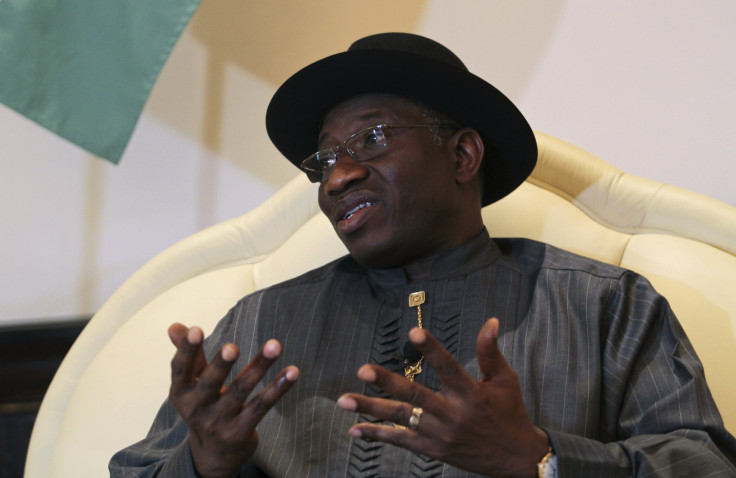In Nigeria, Corruption Wins Again As Former Thieving Governor Is Pardoned

A Nigerian politician who stole millions of dollars from the public while in office was pardoned on Wednesday, raising concerns that high-level impunity still reigns in one of the most corrupt countries on Earth.
Diepreye Alamieyeseigha, 60, who served as governor for the state of Bayelsa from 1999 to 2005, was detained in London on suspicions of embezzlement during his final months in office. He was found in possession of millions of dollars, and an impeachment notice came in November of that year.
That left Bayelsa, which sits at the hub of Nigeria’s lucrative oil production industry,to the governance of a little-known politician named Goodluck Jonathan.
Jonathan went on to become vice president of Nigeria in 2007 and assumed the presidency in 2010. He was popularly elected for the first time in 2011 on promises to battle corruption -- that is, the kind practiced by his former mentor Alamieyeseigha.
By that time, Alamieyeseigha was already free. He had pled guilty in a 2007 court appearance. At least $1.9 million of his assets were returned to Bayelsa and was sentenced to three two-year terms behind bars, to be served concurrently. And since the judge determined that the criminal had already spent time in detention, his actual sentence lasted for only one day.
The Wednesday decision simply means that Alamieyeseigha’s guilt has been expunged from public record and he may now run for political office if he so chooses.
The pardon was announced by an advisory body called the Council of State, which includes the president. Technically, only Jonathan himself has the power to make such a decision. But Doyin Okupe, an adviser to Jonathan and member of the council, called it a group effort.
“It is like a parent -- it is not every decision a parent takes that is palatable or acceptable to the children. But in due course, we always find out the parents were right,” Okupe said during a television interview, according to the Associated Press. “The man has been displaced from his office as governor; he was hounded and tried and jailed. ... What is eminently wrong, you know, in giving a remorseful sinner [a] pardon?”
Nigerian citizens might disagree.
With a population of 163 million, Nigeria is Africa’s most populous country. Politically, it functions according to a system of multiparty democracy with general elections every four years.
But corruption has long impeded progress in this oil-rich West African nation. A 2012 Gallup poll found that a whopping 94 percent of citizens thought corruption was widespread in their government, which makes Nigeria the second-most corrupt country on Earth after Kenya, according to public perception. The latest annual transparency ranking from Transparency International gives Nigeria a score of 27 out of 100, which is comparable to Azerbaijan and Pakistan.
Nigeria does have some assets working in its favor. It is the largest crude producer in Africa, and oil revenues tend to account for more than 80 percent of yearly national income. In 2011, gross revenue from crude exceeded $55 billion. In total, the country has a GDP of about $236 billion, but the impact of this income on the lives of average citizens has been minimal.
More than half of the Nigerian population lives below the poverty line, and the unemployment rate is more than 20 percent. Infrastructure is underdeveloped, especially in northern and rural areas. A pattern of fiscal mismanagement has discouraged international investment and assistance.
Part of the problem is that the government has failed to invest in the refineries necessary to convert its abundant crude into refined, usable product -- so this oil-rich country actually imports its fuel and then spends billions of dollars on subsidies so that citizens can purchase it at an affordable price.
A domestic investigation last year revealed that Nigeria’s import-and-subsidize program is riddled with corruption; it cost the country about $6.8 billion over a three-year period. That’s on top of the actual cost of the subsidy, which has amounted to $23 billion since 2006, according to the Petroleum Products Pricing Regulatory Agency.
But federal efforts to remove this absurdly costly subsidy have been met with public protests.
As governor of the oil-rich Bayelsa state, it is likely that Alamieyeseigha was one of the major power players involved in this pervasive graft. His pardon has angered Nigerians not only because it represents a failure of the justice system, but because it evinces a pattern of high-level impunity that continues to cost the national economy billions and billions of dollars each year at the ultimate expense of Nigeria’s poorest.
Nuhu Ribadu, a former policeman and one-time presidential hopeful who led the case against Alamieyeseigha several years ago, told the Associated Press on Wednesday that he deeply regretted Jonathan’s decision to pardon the convicted criminal.
“It is the final nail that tells the story of fighting corruption in Nigeria today,” he said. “I’m really sad. I’m sad for my country.”
© Copyright IBTimes 2024. All rights reserved.






















